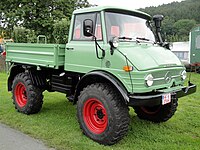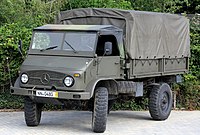
Back استخدام مزدوج Arabic Тэхналогіі двайнога прызначэння Byelorussian Dvojí užití Czech Dual-Use German Kaksikäyttötuote Finnish Biens et technologies à double usage French טכנולוגיה דו-שימושית HE Prodotto a duplice uso Italian デュアルユース Japanese 이중 용도 기술 Korean
In politics, diplomacy and export control, dual-use items refer to goods, software and technology that can be used for both civilian and military applications.[1]
More generally speaking, dual-use can also refer to any goods or technology which can satisfy more than one goal at any given time. Thus, expensive technologies originally benefitting only military purposes would in the future also be used to serve civilian commercial interests if they were not otherwise engaged, such as the Global Positioning System developed by the U.S. Department of Defense.
The "dual-use dilemma" was first noted with the discovery of the process for synthesizing and mass-producing ammonia which revolutionized agriculture with modern fertilizers but also led to the creation of chemical weapons during World War I. The dilemma has long been known in chemistry and physics, and has led to international conventions and treaties, including the Chemical Weapons Convention and the Treaty on the Non-Proliferation of Nuclear Weapons.[2]
- ^ Exporting dual-use goods. European Commission (accessed Aug 2022)
- ^ Webb, Amy (14 February 2022). "The Next Pandemic Could Start With a Terrorist Attack". The Atlantic. Retrieved 17 February 2022.

